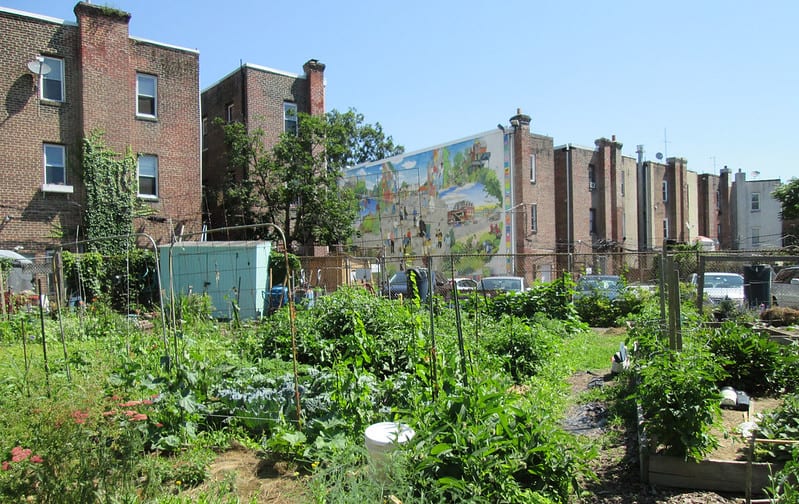PHILADELPHIA – At today’s City Council meeting, Councilmember Jamie Gauthier (3rd District) introduced a bill to facilitate the disposition of publicly owned property for affordable, community-led development projects. If passed, this legislation will help address Philadelphia’s growing need for affordable, accessible homes, and relieve food insecurity in Black and brown communities through the creation or preservation of community gardens. The bill is co-sponsored by Councilmembers María Quiñones Sánchez (7th District), Kenyatta Johnson (2nd District), Kendra Brooks (At-Large), and Derek Green (At-Large).
“The COVID-19 pandemic has only exacerbated our city’s housing and food affordability crises – and now it’s more crucial than ever that we put surplus city-owned land into community hands,” said Councilmember Gauthier. “With each piece of land lost to for-profit development, the City loses an opportunity to shore up affordability and community-serving uses that will have long-term benefits. I’m grateful to my Council colleagues who are co-sponsoring this legislation, and to the Philadelphia Coalition for Affordable Communities for their steadfast advocacy on behalf of our communities.”
Before COVID-19, half of all renters and more than one out of every three homeowners in Philadelphia were cost-burdened, meaning that after paying housing costs, they were unable to afford other basic needs like groceries. The pandemic has only intensified this crisis. Data shows that rising housing costs in North, South and West Philadelphia over the last two decades have displaced 32 percent of Black residents.
Community open spaces and gardens are another casualty of gentrification, quickly being lost to market-rate development. Meanwhile, food insecurity is a stubborn problem in Philadelphia: almost one out of every five city residents live in households that do not have enough to eat over the course of a year.
This new legislation allows non-profit organizations that focus on permanent affordability to more easily acquire City-owned land – a process that is currently very challenging for nonprofits and community groups because of significant upfront overhead and financing requirements. This bill proposes that the land initially be leased to the groups for five years; during that time, the Philadelphia Land Bank will ensure that the community organizations have the capacity to carry out affordable housing, food production and open space projects.
Councilmember Gauthier is proud to collaborate with advocates from the Philadelphia Coalition for Affordable Communities (PCAC) on this legislation.
“This bill will make a real difference to people who are disabled,” said Domonique Howell, member of Liberty Resources & Disabled in Action and PCAC member. “Affordable, accessible homes are out of reach for myself and many other Philadelphians.”
“Our city is filled with food deserts, and food insecurity has grown,” said Suku John, Executive Director of East Park Revitalization Alliance a PCAC member. “Urban gardens increase access to nutritious food, strengthen community ties and promote well-being. It’s critically important to use city-owned vacant land for Philadelphians to create gardens and that the urban farms and green spaces that we have, are preserved.”
“With more communities becoming unaffordable, the time is now for advocates and City Council to work together to ensure that public land is used for public benefit,” said Nora Lichtash Women’s Community Revitalization Project Director, Philadelphia Coalition for Affordable Communities member.
The bill is expected to receive a hearing in the first quarter of 2022.
# # #


